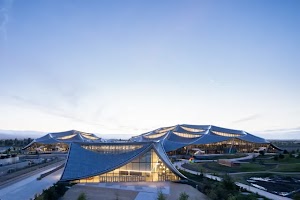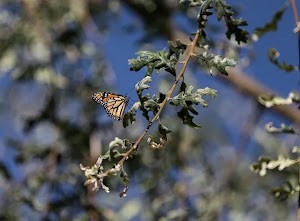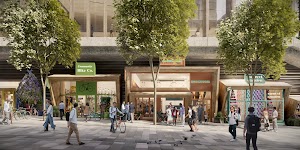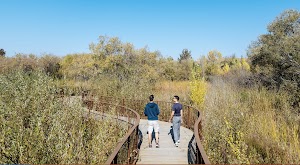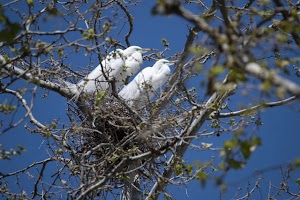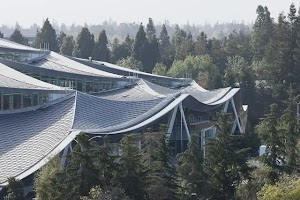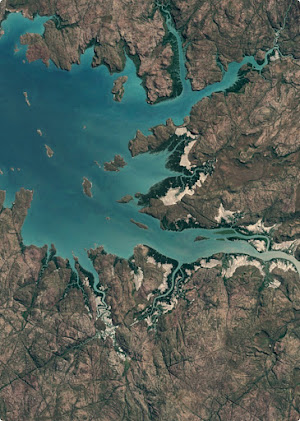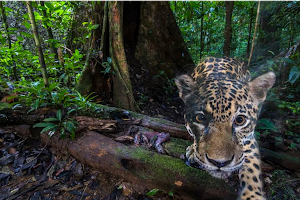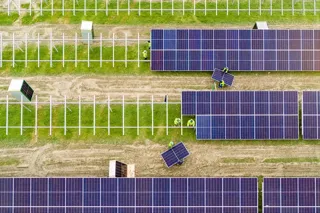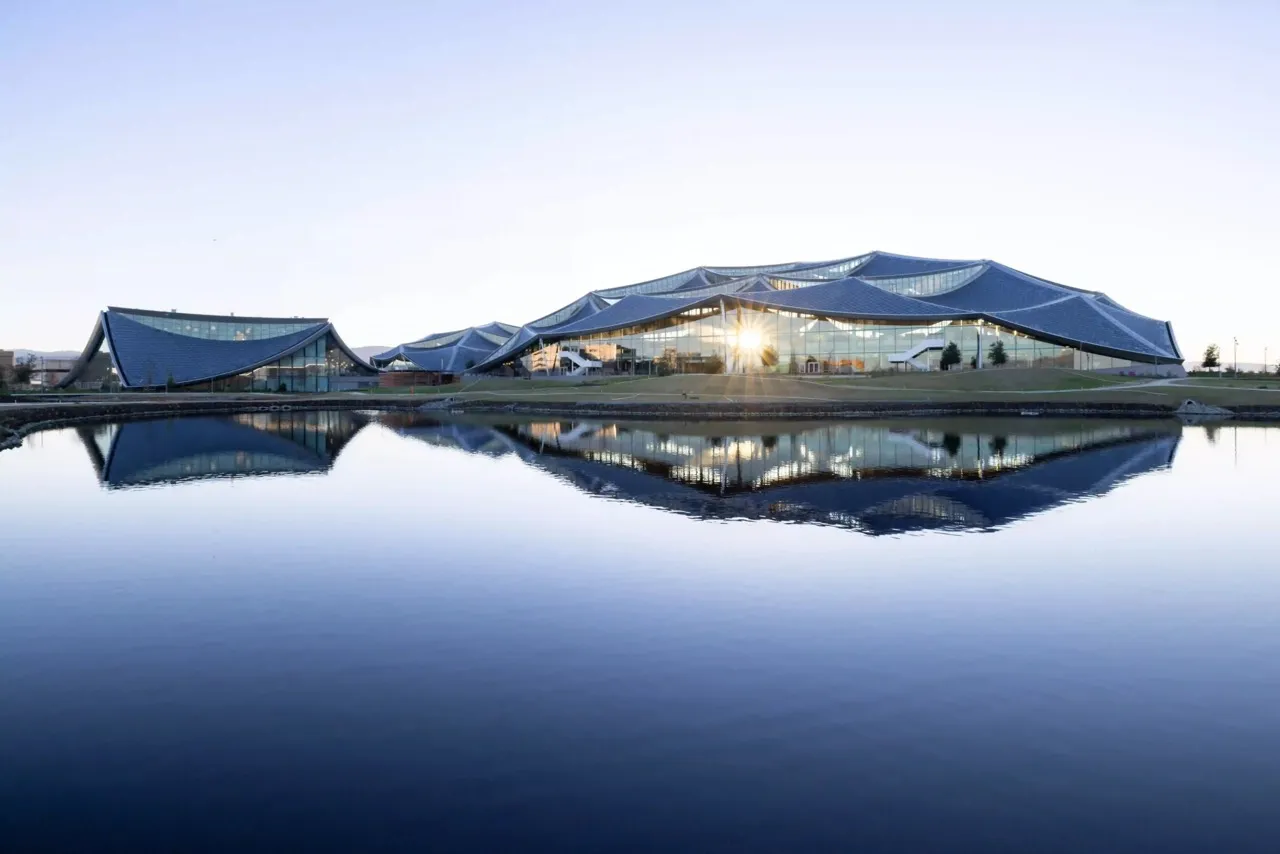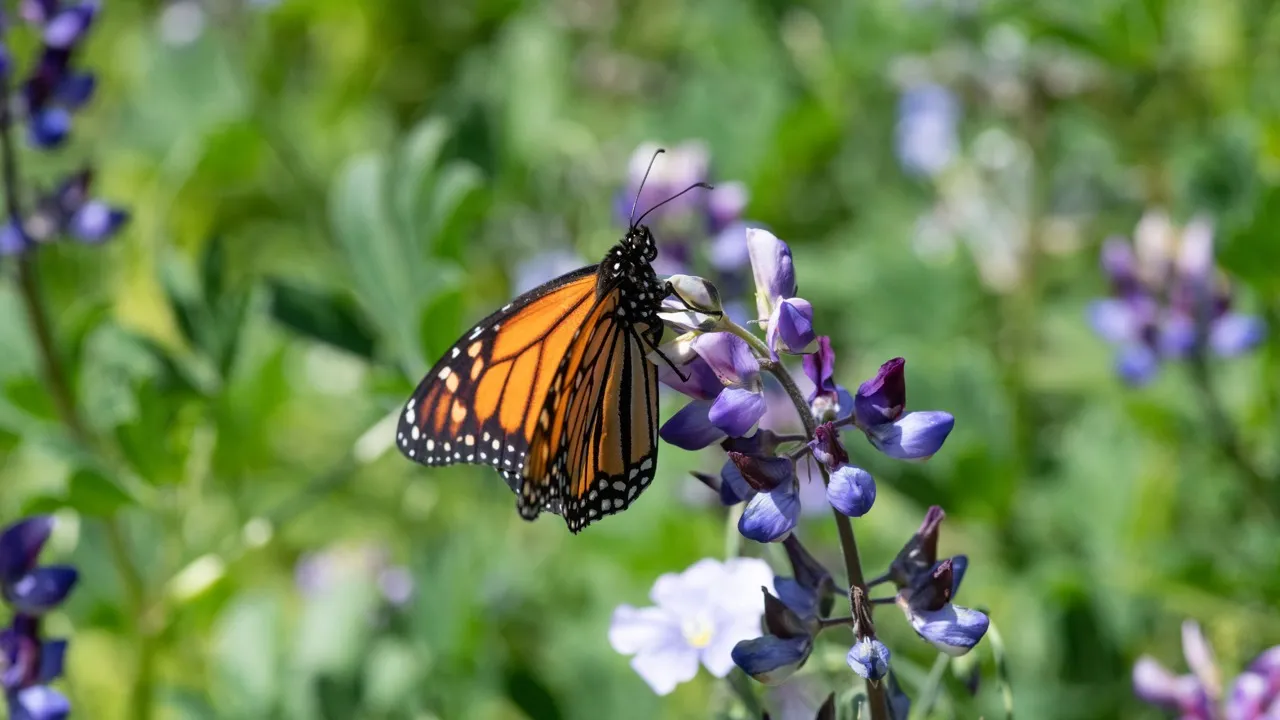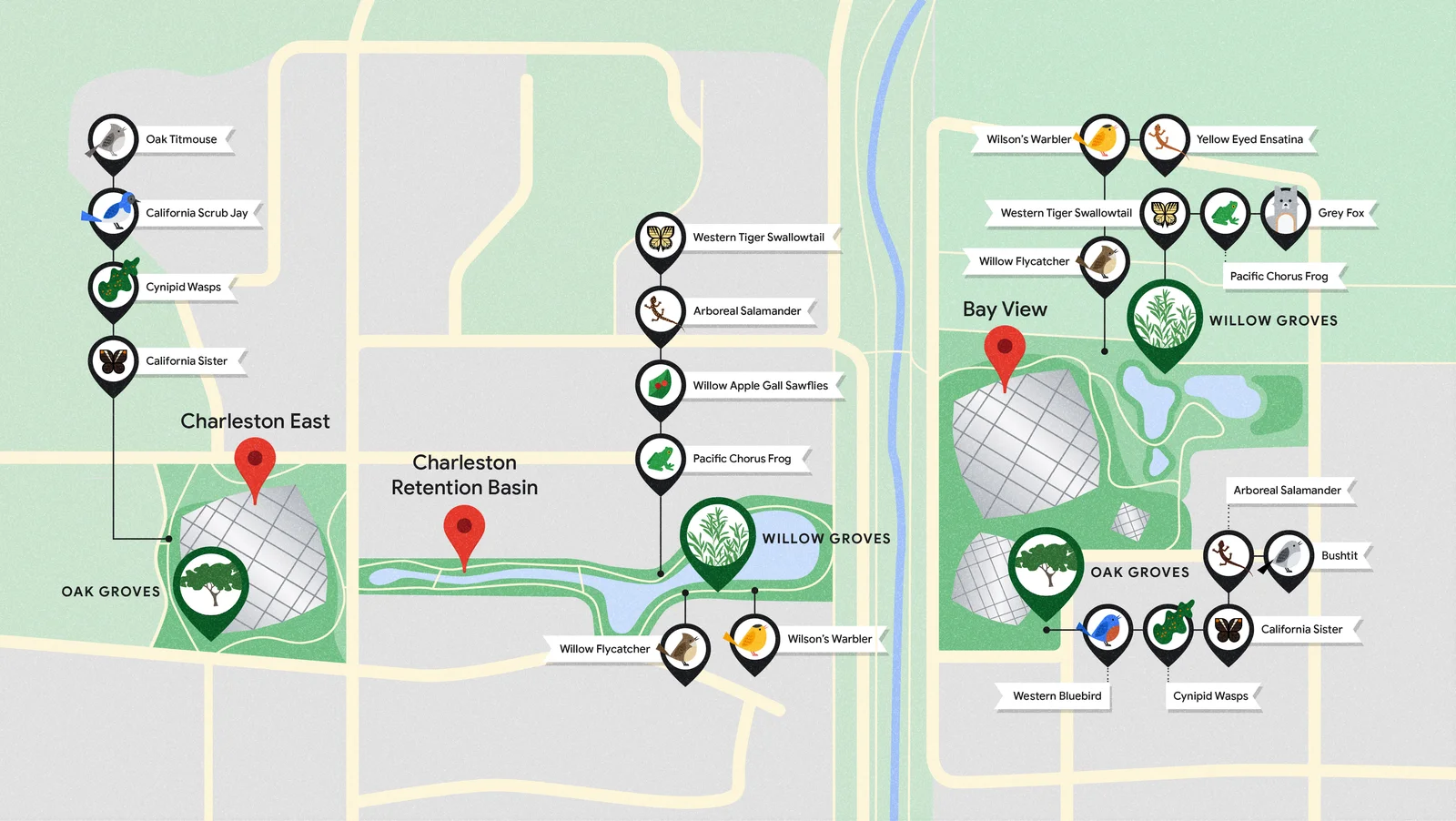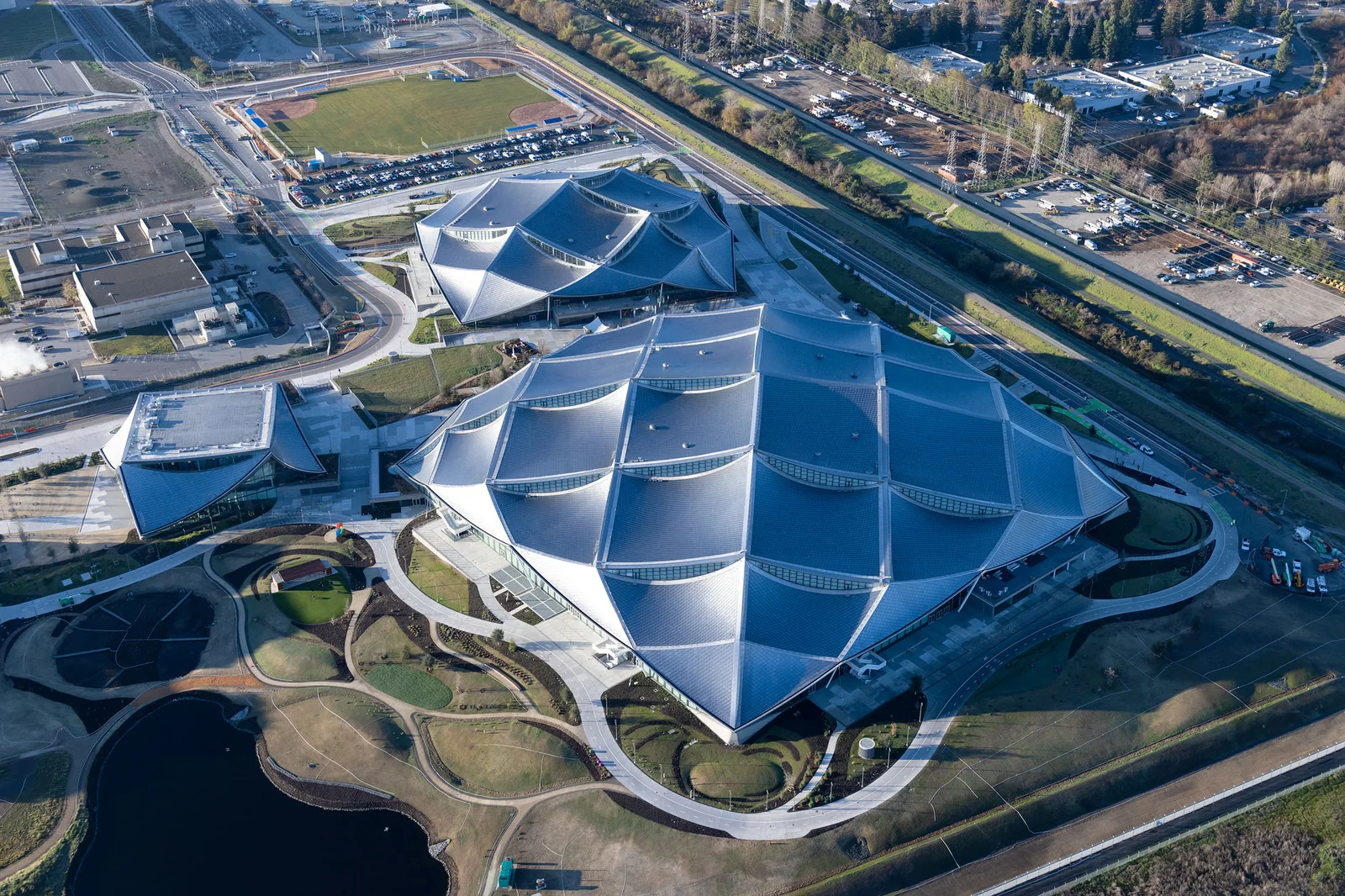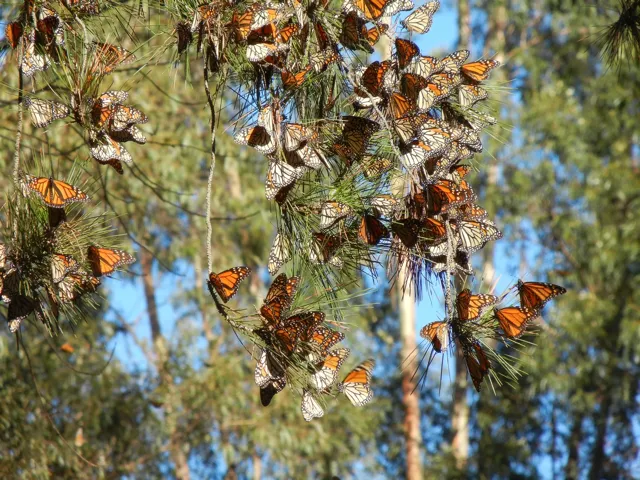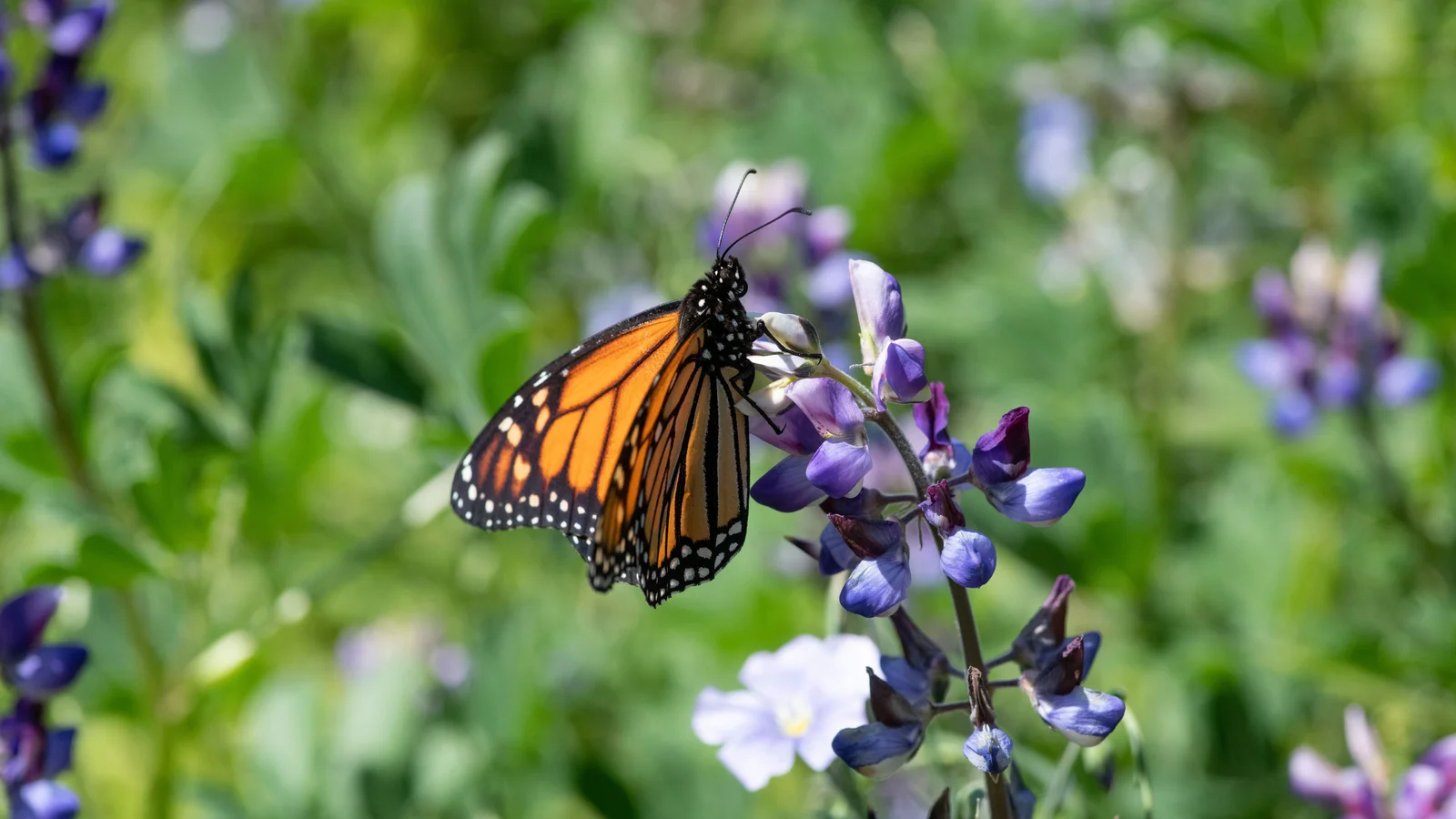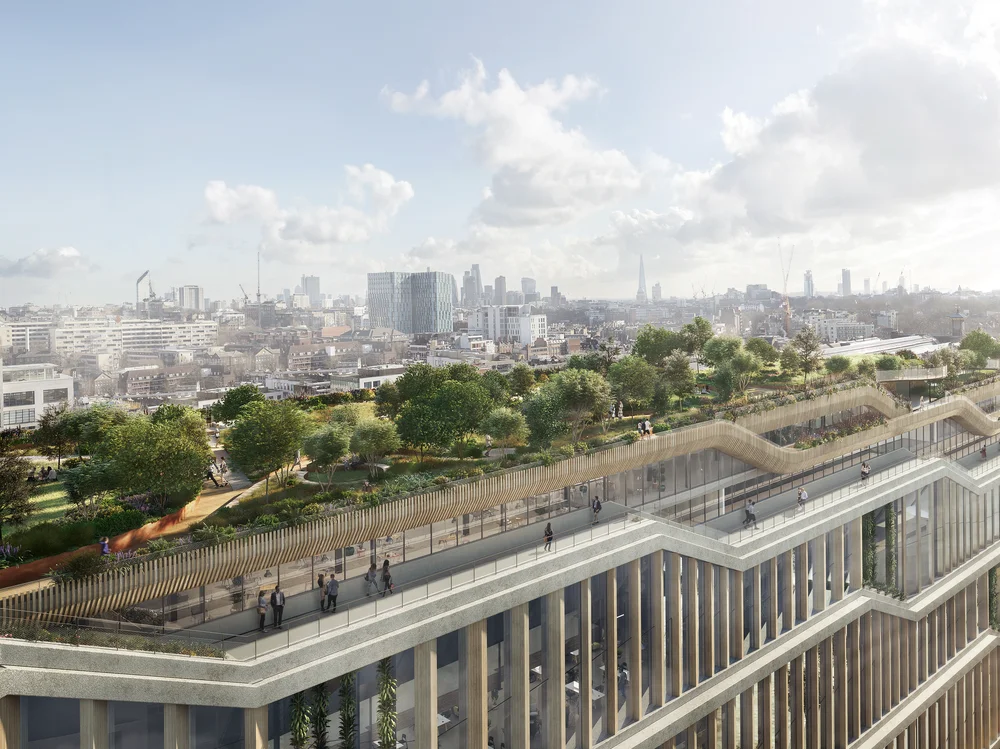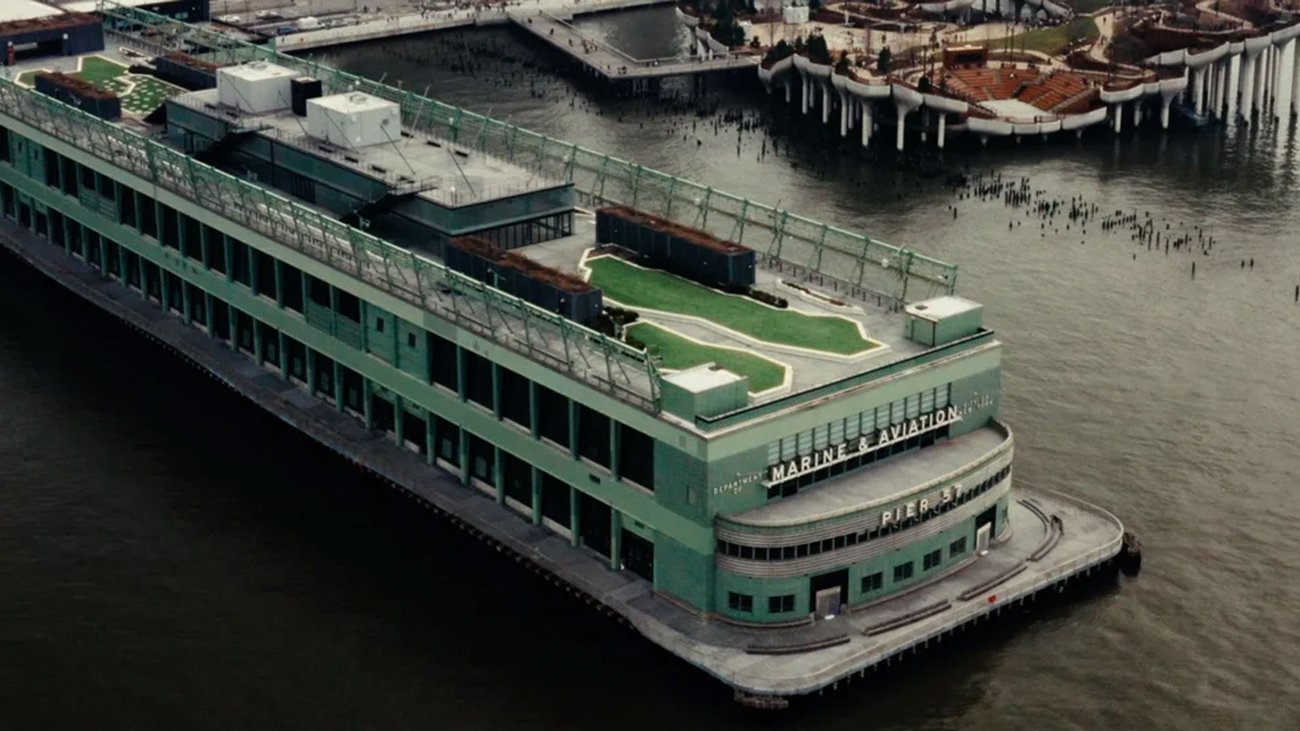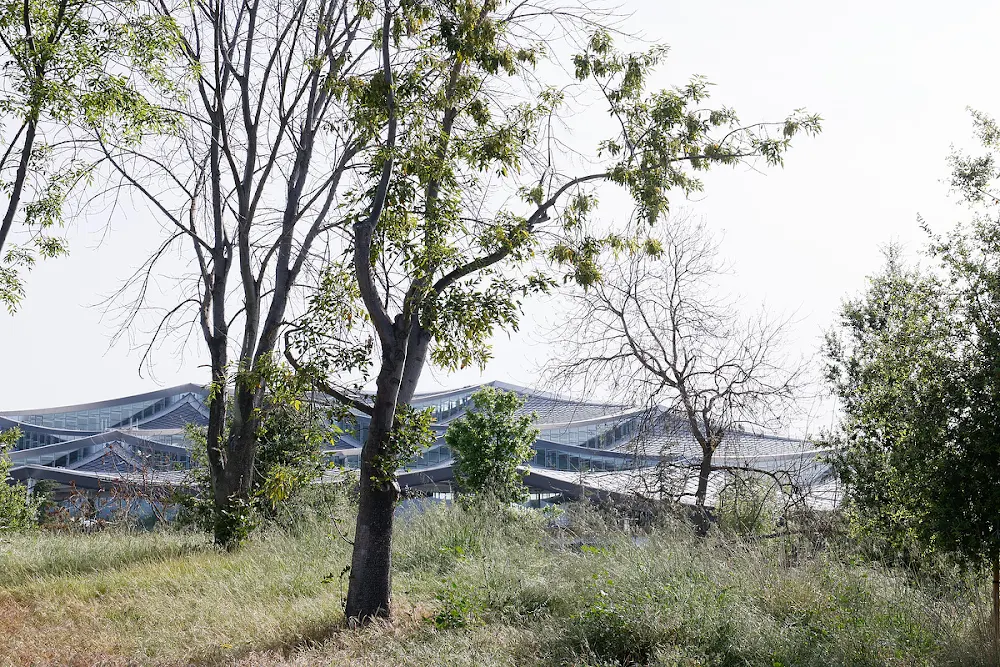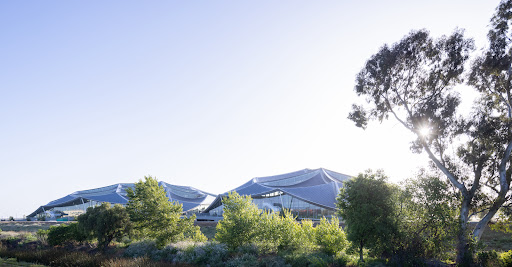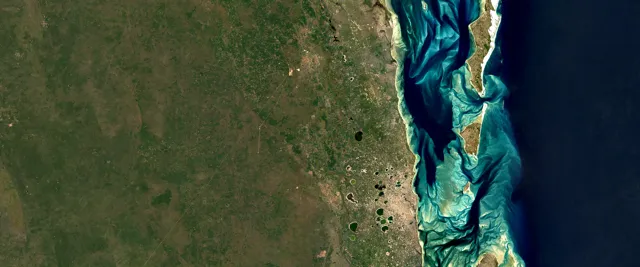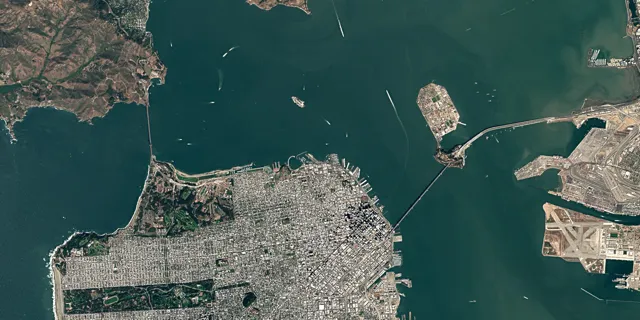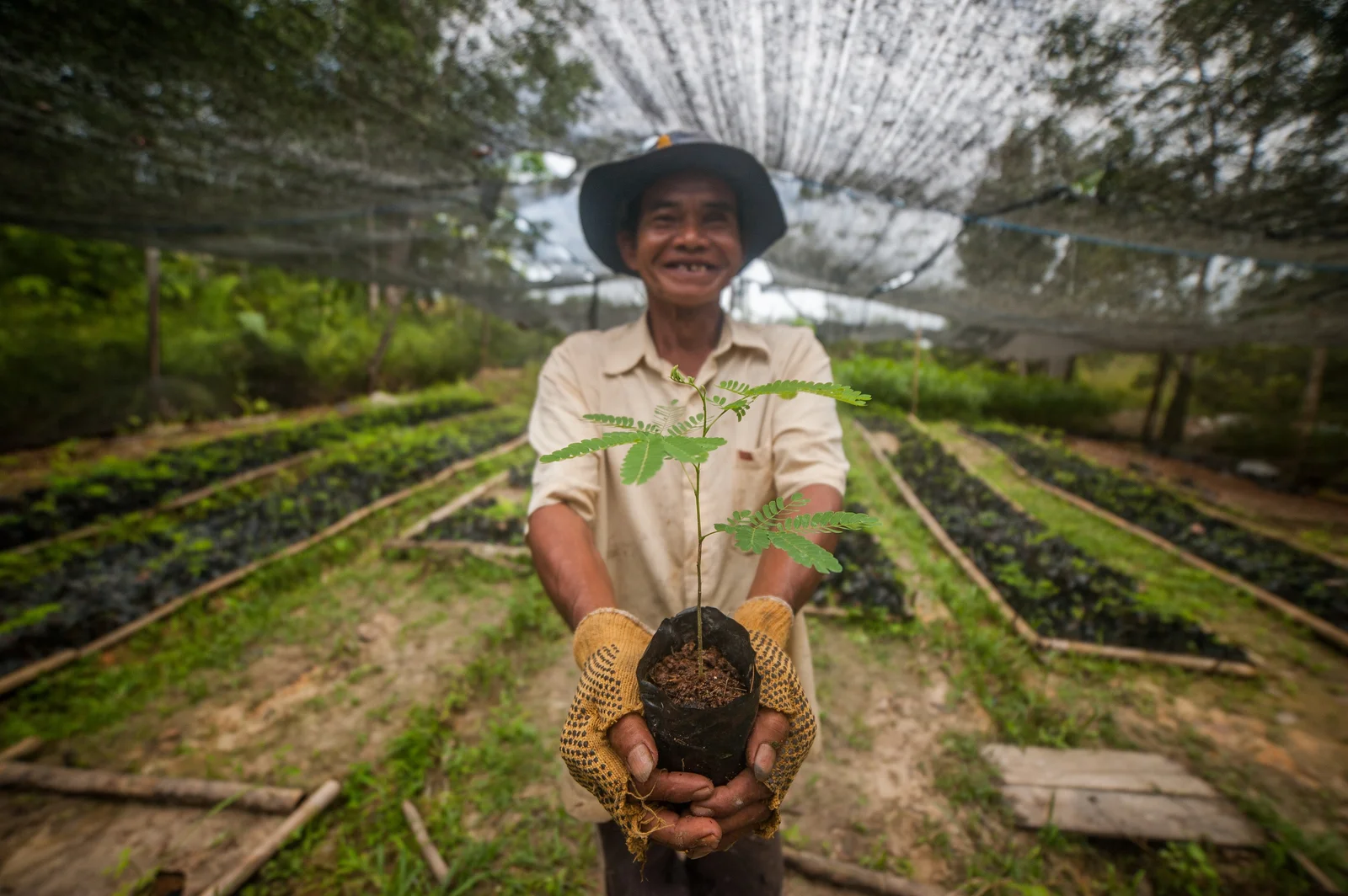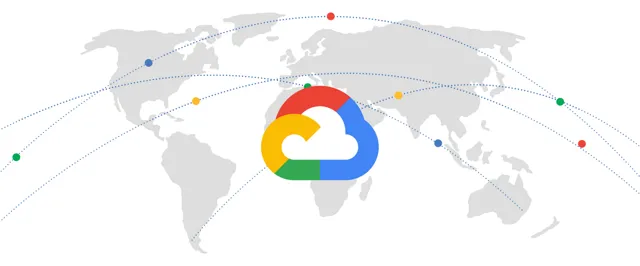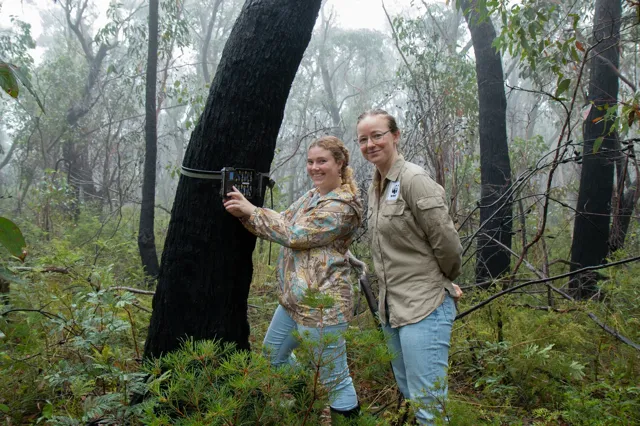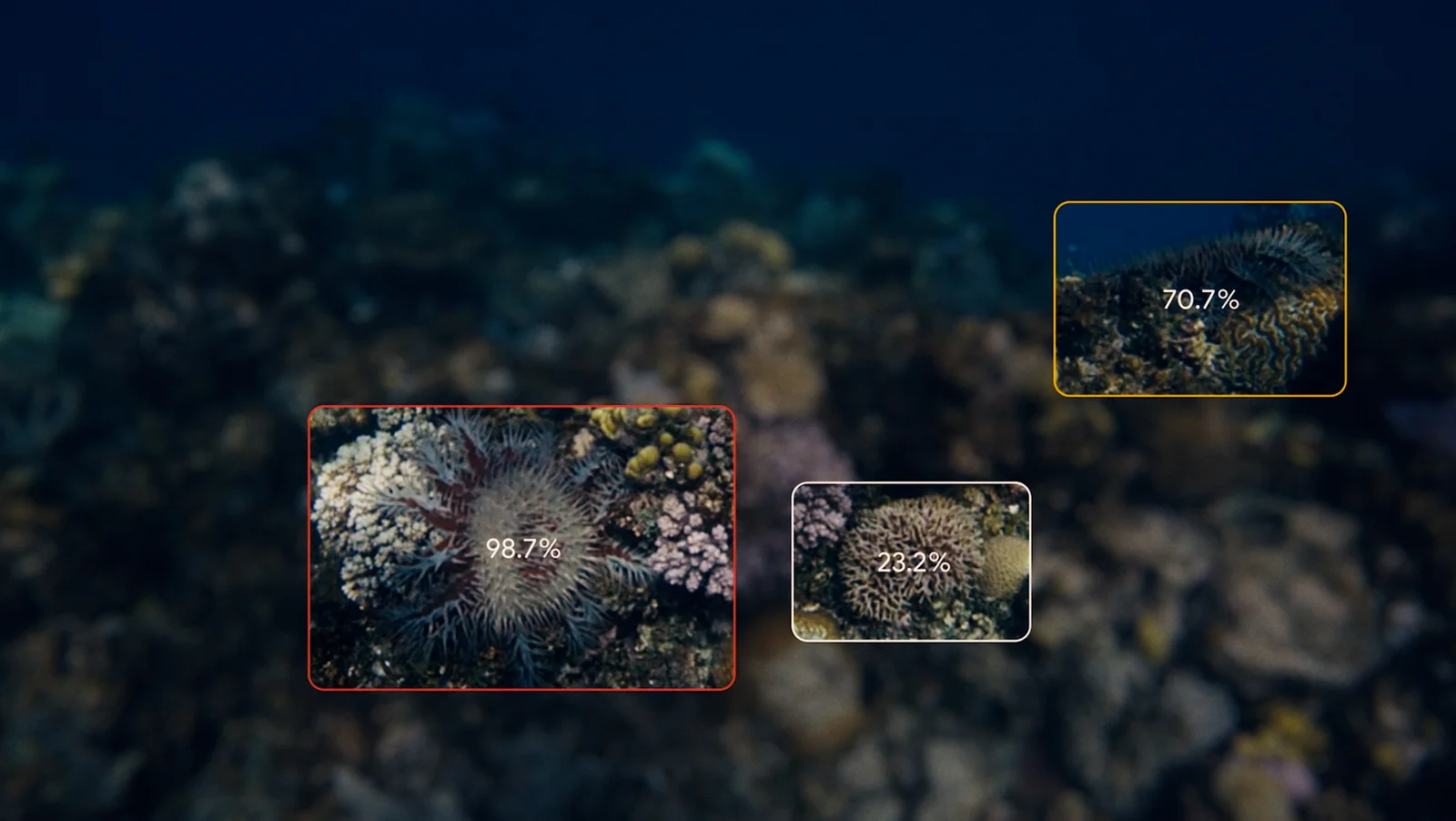Nature & biodiversity

In 2022 we opened Pier 57 in New York City, which incorporates water views and plantings throughout the building to support biophilic design
Learn moreStriving to protect and enhance nature and biodiversity through our campuses and technology
Preserving and restoring nature is critical both to mitigating climate change and adapting to it. By incorporating nature-based solutions such as native habitat enhancement and ecosystem protection, we can help reduce flood impacts, wildfires, and many other severe weather events that occur with increasing frequency.
Investing in nature is an investment in our workers, our products, and our communities. We want nature and people to flourish together in the communities that Google calls home, as well as the ecosystems where we source food for the hundreds of cafes we operate. Our billions of users also have the potential to have a positive impact on their environments if given the information and tools to do so.
Our key efforts
Designing for ecology
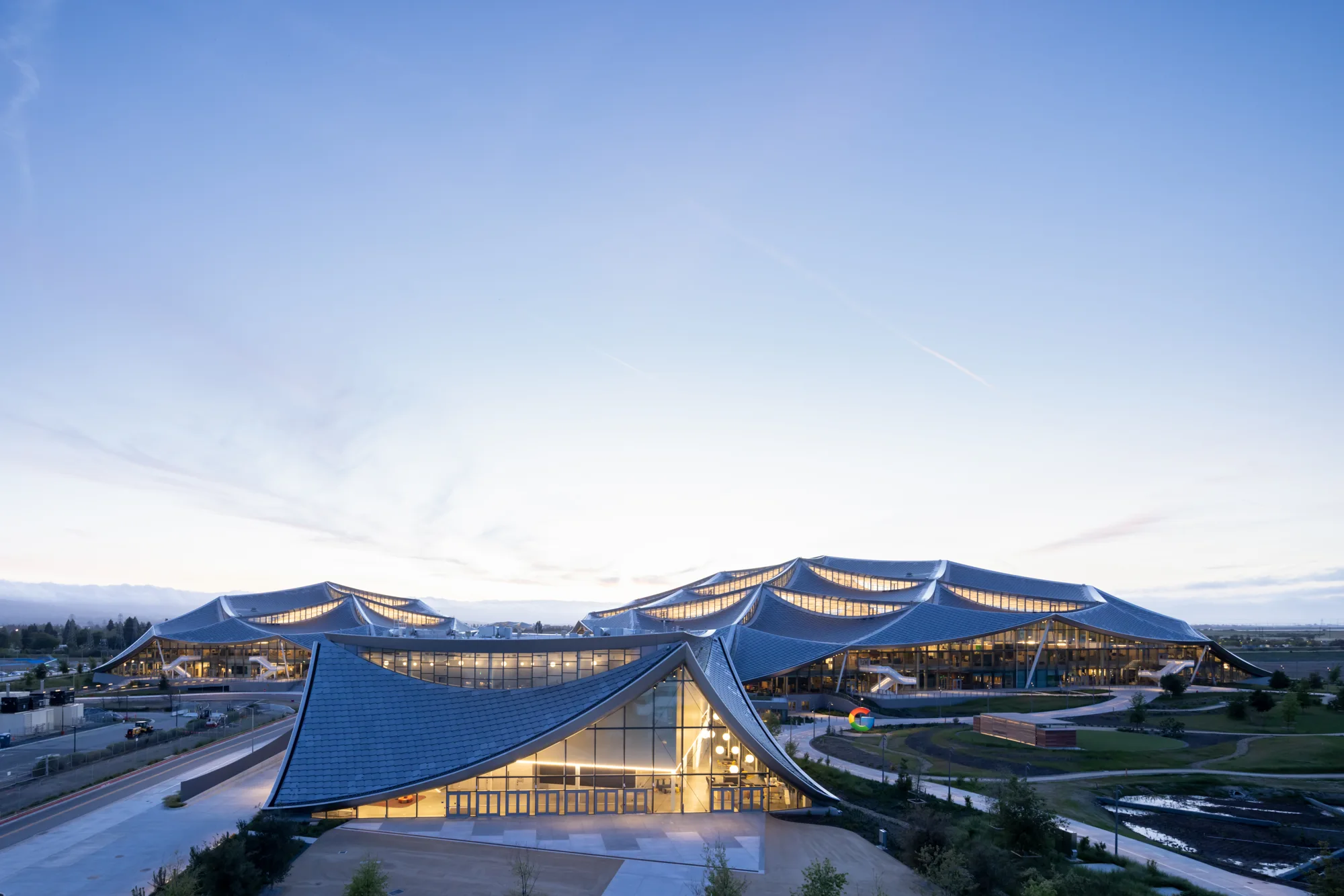
A view of the Bay View campus with the events center in the foreground. Photo: Iwan Baan
We’re working to bring nature back into the built environment—in part, by restoring critical habitats like oak woodlands and willow groves across our San Francisco Bay Area campuses. Our aim is to revive the area’s ecological heritage and bolster the human experience while creating thriving, functional landscapes for a biodiverse constellation of species. In the Bay Area and beyond, wherever possible, we strive to build biodiversity on-site at Google offices and campuses by designing for ecology and bringing nature back to cities.
In 2022, we opened Bay View, the first major campus designed by Google, and one of the most comprehensive examples yet of our approach to designing for ecology. Bay View features over 17 acres of high-value natural areas—including wet meadows, woodlands and a marsh—designed to reestablish native landscapes and rehabilitate Bay Area wetlands.
The significant amount of open space at Bay View is thoughtfully designed to echo pre-development water flows through stormwater treatment areas, which include open-water ponds that provide habitat for aquatic wildlife. New willow groves provide a critical habitat for local wildlife and migrating songbirds, which have almost entirely disappeared from the South Bay.
Additionally, native pollinator gardens at Bay View help the campus meet the Living Building Challenge’s urban agriculture criteria, recognizing the key role of native pollinators—such as bees—in local food production and ecosystem health.
Related resources
Did you know?
-
In 2017, we contributed to the restoration of the Charleston Retention Basin near our Bay Area campuses, including nearly 6 acres1 of new and enhanced freshwater marsh and native upland and riparian communities, and we continue to protect a rookery that is regionally important for the local egret population.
-
From 2014 to 2023, we created or restored approximately 67 acres of habitat and planted roughly 4,500 native trees on Google’s campuses and the surrounding urban landscape, primarily in the San Francisco Bay Area.
Creating and restoring habitat
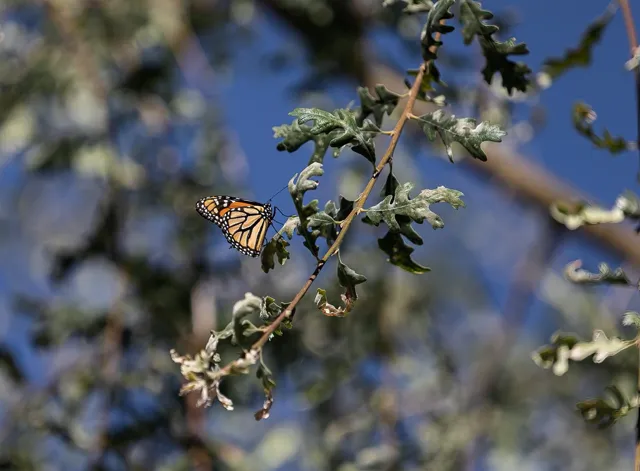
We’re expanding native, biodiverse habitats on our development sites through both large- and small-scale efforts that prioritize local species. As of the end of 2023, we created or restored approximately 67 acres of habitat and planted roughly 4,500 native trees on Google’s campuses and the surrounding urban landscape, primarily in the San Francisco Bay Area.
We made progress on monarch butterfly habitat creation: From 2021 to 2023, we created 20 acres of new habitat on our California campuses designed to support monarch butterflies and other pollinators, aligned with Google’s 2021 monarch butterfly pledge. We’re already seeing benefits, with about 10 times more monarch caterpillars at our new habitat sites, compared to control sites on our campus without new monarch-friendly plants. Our efforts to support pollinator habitats earned us the 2023 Monarch Sustainer of the Year award from Pollinator Partnership.
In 2023, we also completed a native habitat restoration project along the West Channel near our Sunnyvale, California, campus. This project restored 4.3 acres of aquatic, wetland, and riparian habitat and is expected to benefit local and migratory water birds. Additionally, the project provides flood protection for adjacent neighborhoods in Sunnyvale via a combination of floodwalls and flood control levees.
Related resources
Did you know?
-
In 2020, California only saw 2,000 monarch butterflies during the winter: a more than 90% decline from the millions of monarchs that visited the state in the 1980s and 1990s.
Bringing nature back to cities
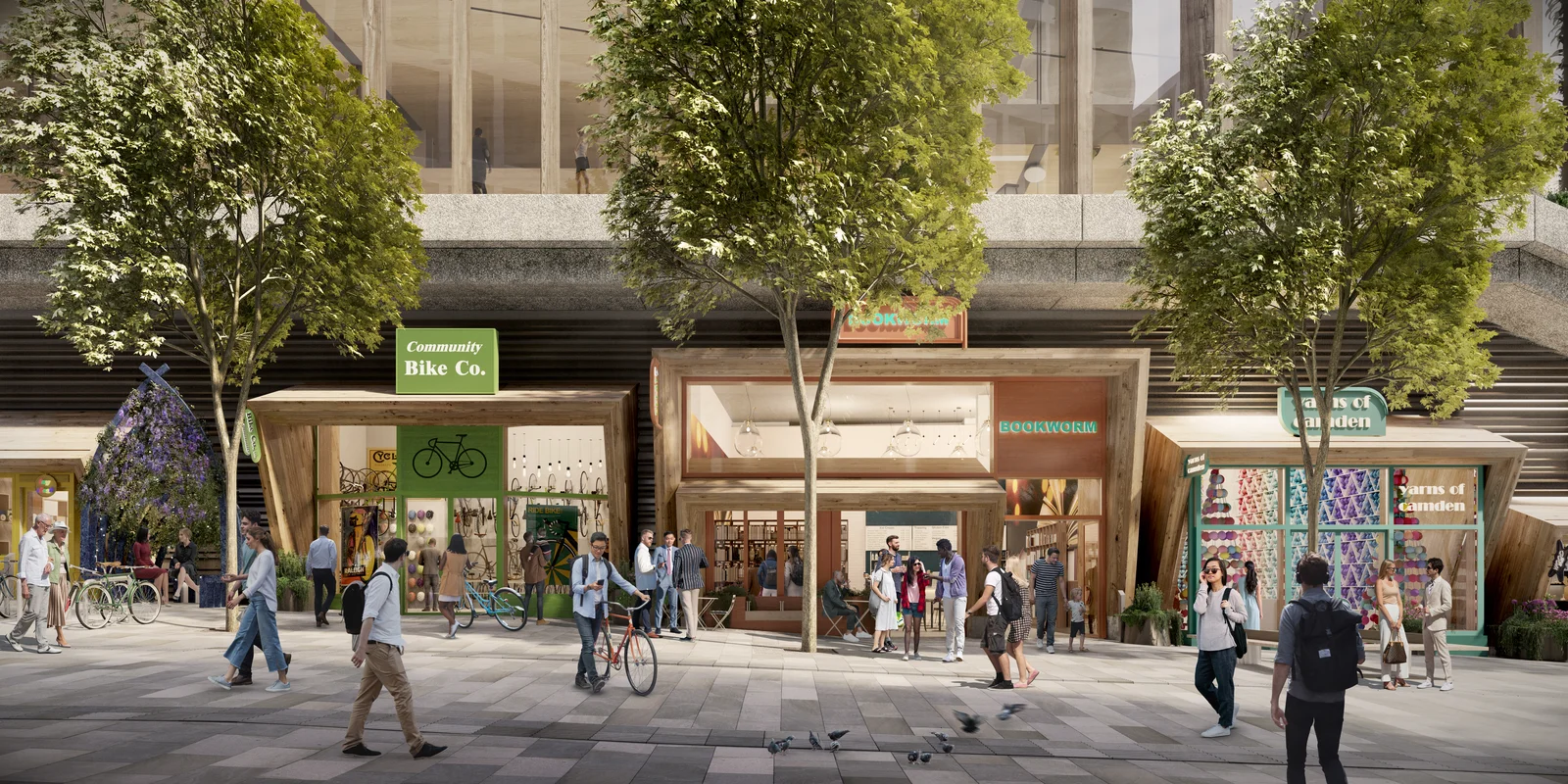
A visualization of our new building in King’s Cross
We’re also bringing nature back to cities where we operate. In urban areas around the world, we’re designing nature into the built environment to improve urban biodiversity and connect people to nature.
Our Platform G building in London’s Kings Cross neighborhood, scheduled to open in 2024, will include a biodiverse green roof and planting palette designed to support native birds, bats, bees and insects, designed in collaboration with the London Wildlife Trust. A densely planted outdoor roof garden with a rainwater irrigation system will provide habitat for protected species of bats and birds, as well as offering a quiet green space for breaks during the work day. We’re collaborating with the London Wildlife Trust as part of a wider initiative to protect our native species and improve local biodiversity.
Beyond the importance to local communities and native species, bringing nature back to cities also helps to address the urban heat island effect. In city centers lacking greenspace, the urban heat island effect produces higher temperatures, leading to increased energy needs, air pollution, and heat-related illness. We can help to abate this through including plantings, green open spaces, tree canopy cover, and reducing impermeable surfaces like concrete.
We published insights from some of this work in an academic paper, aiming to inspire others and provide them with tools and techniques for integrating nature into dense urban areas.
Related resources
Did you know?
-
A system of 13,500 interconnected devices around the King’s Cross office will improve energy efficiency in real time, while solar shading will help regulate the building’s temperature by reducing glare from the sun.
-
We’ve prioritized low-carbon, local materials in the construction and interior design to reduce the carbon impact of our King’s Cross building by 20%.
Nurturing nature across ecosystems
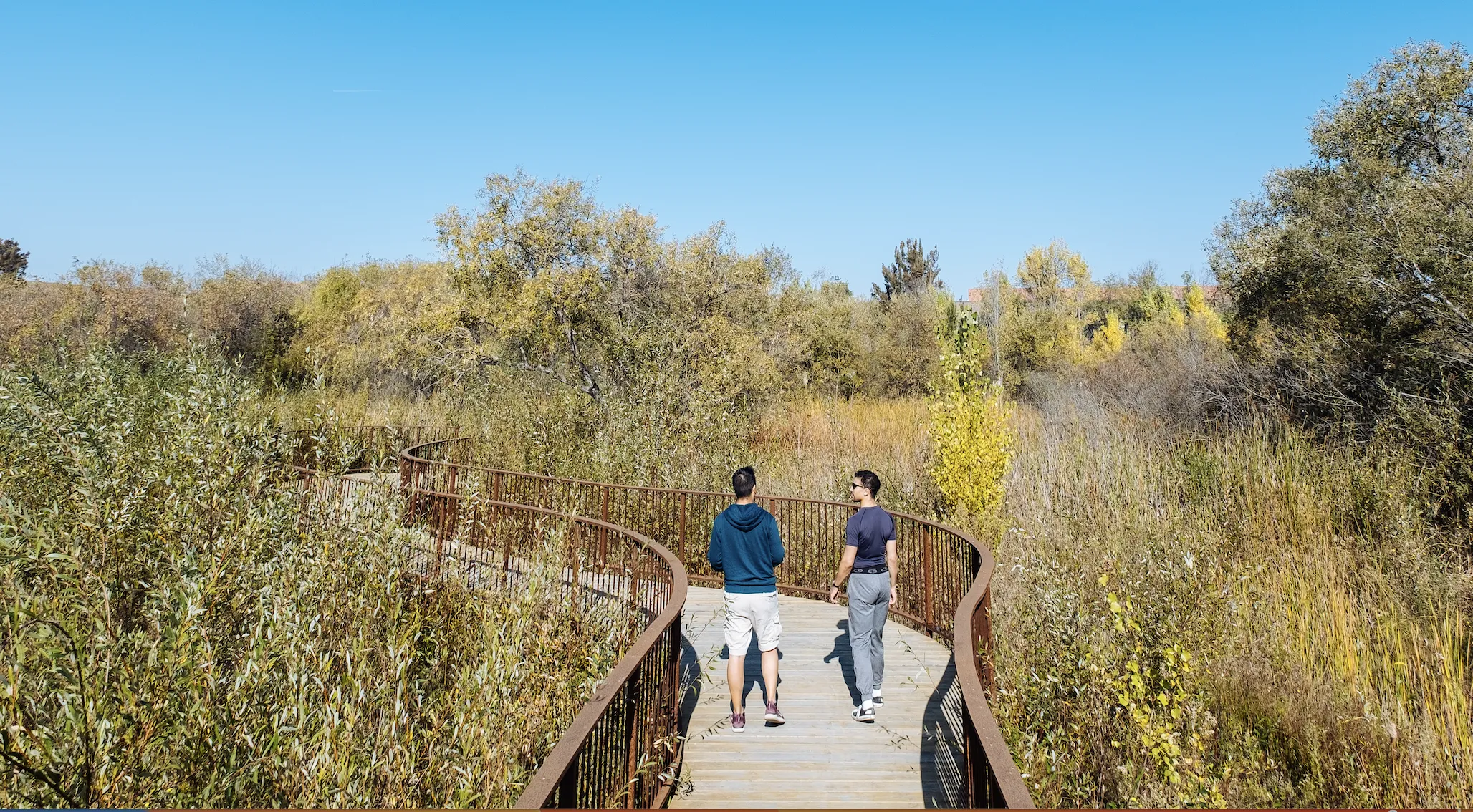
Near Charleston East, Google helped the City of Mountain View realize the 6-acre Charleston Retention Basin in 2017
We invest in restoration projects outside of Google’s campuses to build health across the wider ecosystem and accelerate our water stewardship goals. In addition to the Google.org grant across the Xerces Society and Peninsula Open Space Trust, Google provided a grant to the City of Mountain View so they could create and maintain pollinator habitat at Shoreline Park.
We also support efforts to strengthen the ecological resilience of critical natural systems like the San Francisco Bay. In 2022, we partnered with the San Francisco Estuary Institute to create the Shoreline Resilience Framework for Wildlife Support, which is being used by regional agencies to identify, map, and enhance functions that contribute to shoreline resilience. These functions may include protecting the shoreline from erosion, supporting threatened and endangered species, and maintaining critical landscape processes like marsh migration with sea-level rise.
Did you know?
-
We’ve put $500,000 toward helping restore and enhance monarch habitat on our campuses, and Google.org granted another $500,000 to the Xerces Society and Peninsula Open Space Trust for habitat work across the state.
Connecting communities and nature
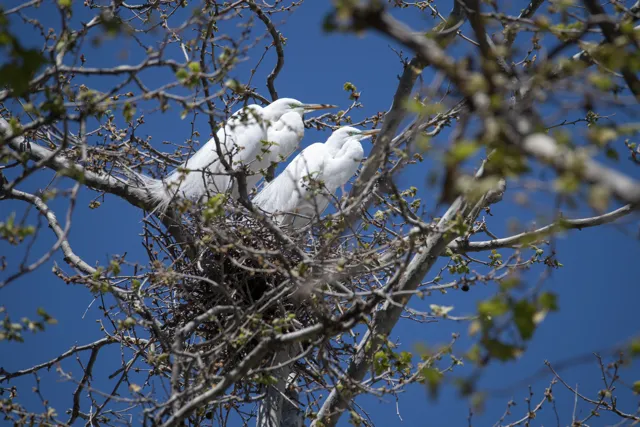
We invest for the long term, so we want to care for the environments and communities where we operate. That means acting as good stewards of the land for both ourselves and our neighbors. Nature is a public-facing amenity and therefore benefits the wider community.
We build trust and goodwill by engaging with local communities and leading programming that extends the benefits of nature to all. For example, in partnership with the Santa Clara Valley Audubon Society, the City of Mountain View and other organizations, Google hosts "Egret Office Hours" at the Shorebird Way rookery so the public can safely see moments throughout the egret breeding cycle.
As another example, we created the Green Loop, a publicly accessible pedestrian and cycling trail connecting some of our buildings in Mountain View. The Green Loop was designed with native vegetation to enhance habitat for pollinators and other wildlife (including nearly 100 native trees), as well as to help manage stormwater. By replacing impervious pavement with native vegetation and tree coverage, the Green Loop also helps to mitigate the heat island effect.
Spending time in nature is connected to a number of proven benefits for health and well-being, including lower blood pressure, reduced stress, and improved mood.1 We ensure that Googlers have access to the benefits of high-quality biodiverse nature through our exterior landscapes. We also focus on bringing attributes of natural environments into our interior spaces by applying biophilic design practices.
To achieve these benefits across our portfolio, we provide real estate project teams with guidance on how to achieve biophilic outcomes from conceptual design, implementation, and documentation of nature-inspired architecture, interior, and landscape design. To further this, we collaborated on an initiative with the International Living Future Institute (ILFI) to make a Biophilic Design Toolkit that was launched in 2022 and is freely available for anyone to use.
Some recent buildings that reflect this approach to biophilic design include Bay View in California, Pier 57 in New York, and Sunnyvale in California.
Related resources
Did you know?
-
Our Bay View campus was a finalist for the 2023 Stephen R. Kellert Biophilic Design Award, presented by ILFI to recognize leading examples of biophilic design in the built environment.2
-
In Sunnyvale, we are building our first ground-up mass timber building, which will incorporate biophilic design principles by exposing the natural timber structure to building occupants, and by providing abundant views and daylight through the interior.
Procuring sustainable materials and supporting biodiverse food systems
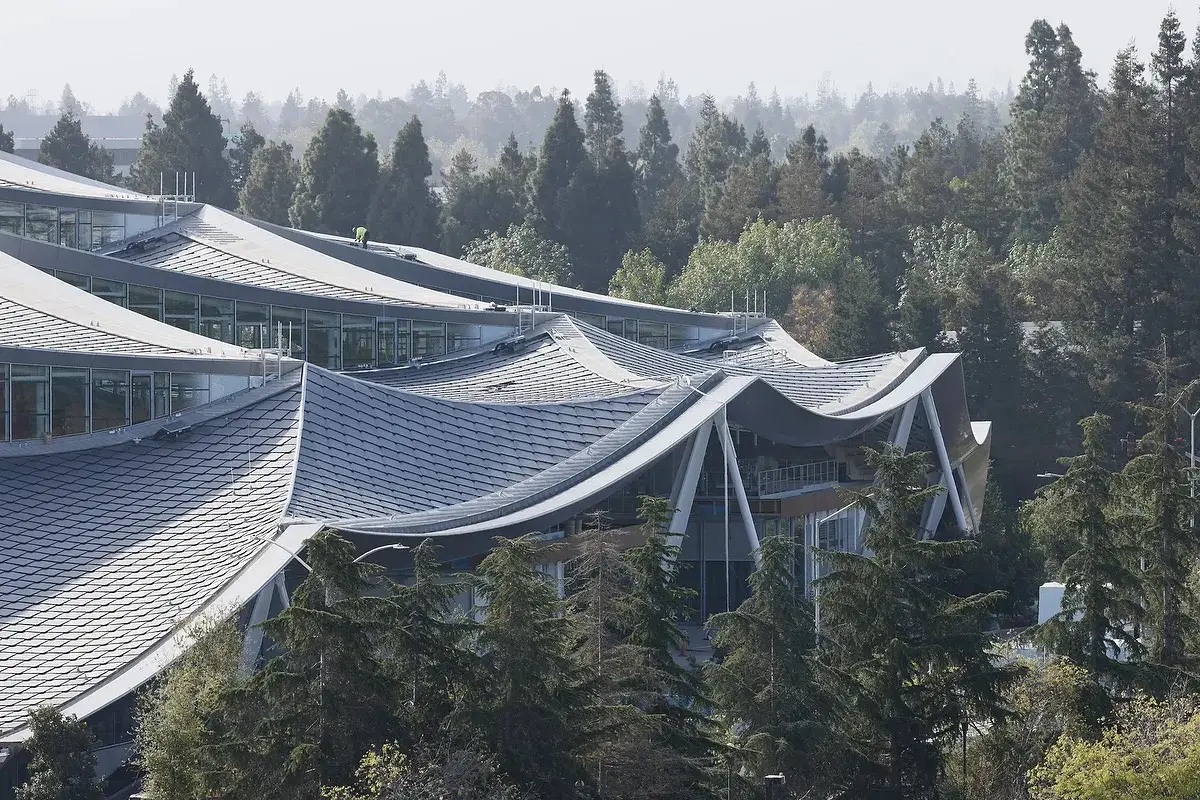
Our Charleston East campus expands the boundaries of sustainable design with flexible workspaces, healthy and reclaimed materials, and public spaces the whole community can enjoy
We are focused on sourcing responsibly across our supply chain by procuring sustainable building and hardware materials and supporting biodiverse food systems.
We procure building materials for development projects and hardware materials for products while aiming to minimize negative impacts on global biodiversity. For example, for new campus developments, we’ve incorporated timber certified by the Forest Stewardship Council—the world’s leading forest certification system for sustainable wood building materials. The first time Google led the concept and construction of our own major campuses, Google and our development partners prioritized FSC certification of all new wood purchased and installed, achieving over 96% FSC-certified wood1 at Bay View. Our efforts earned us a 2021 FSC Leadership Award, which recognizes excellence in responsible forest management and conservation.
We work to ensure our food operations contribute positively to global biodiversity. Across our cafes, our Food team is focused on increasing the proportion of agrobiodiverse crops featured across our menus. We leverage procurement practices and menu design to replace monocrop commodities with climate-resilient crops, and jumpstart local markets to support agrobiodiversity. In addition to agrobiodiversity, we also support regenerative agriculture practices. This work builds upon the Food team’s vision of contributing to feeding the world responsibly and sustainably.
Related resources
Google Earth Engine, a planetary-scale platform
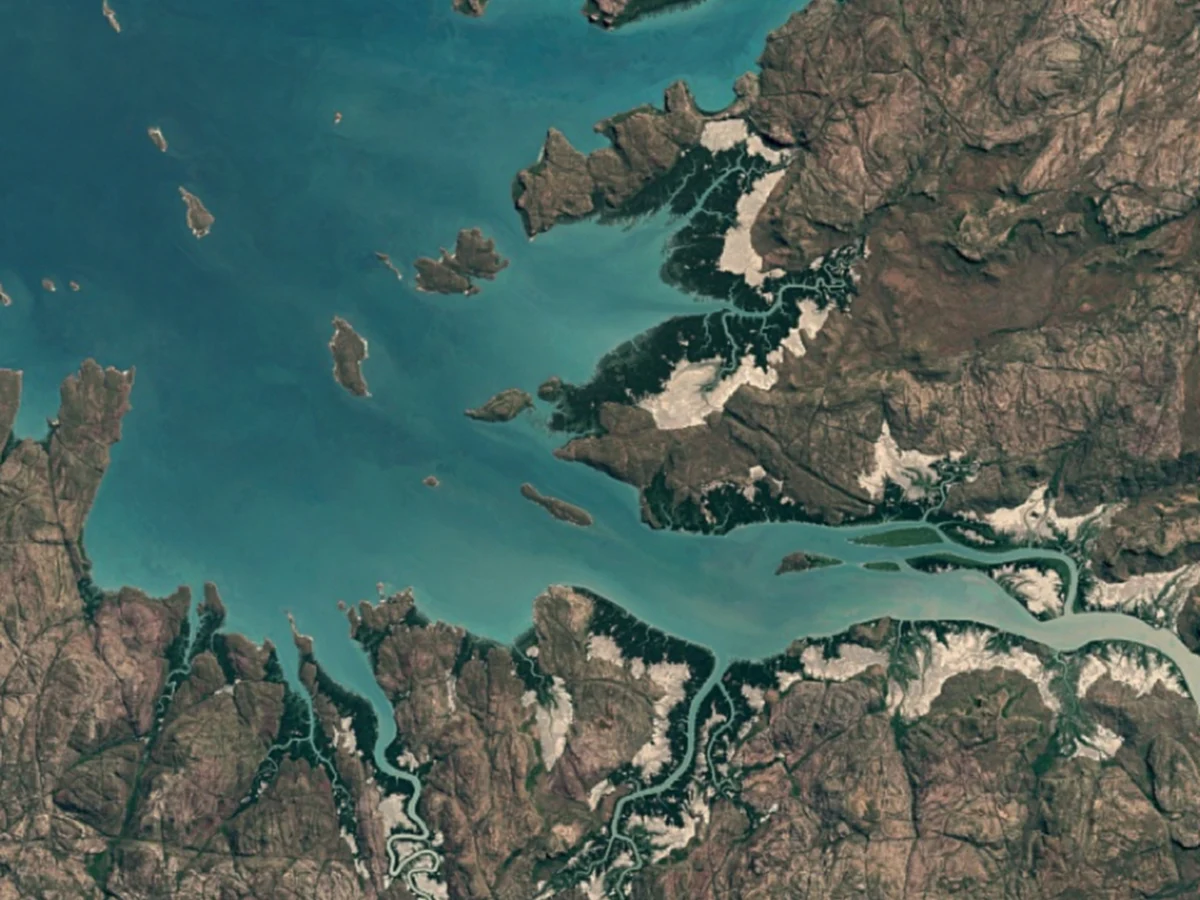
Protecting nature requires everyone to play a role. In line with our mission to organize the world’s information and make it useful, we build tools and technology that enable partners, NGOs, governments, and academics around the world to help address nature and biodiversity loss.
Our most impactful technology in this area is Google Earth Engine, a leading technology platform for planetary-scale environmental monitoring that was originally launched to scientists and NGOs in 2010.
It offers roughly 1,000 earth observation datasets with powerful cloud computing to show timely, accurate, high-resolution insights about the state of the world’s habitats and ecosystems—and how they’re changing over time.
In 2022, we expanded Google Earth Engine’s availability for commercial use by businesses and governments worldwide as an enterprise-grade service through Google Cloud.
Related resources
Land restoration with Restor

Founded by Crowther Lab in Zurich and powered by Google Earth Engine and Google Cloud, Restor allows anyone to analyze the restoration potential of any place on Earth.
When you outline a given area on the Restor map, it will show you data on local biodiversity, current and potential soil carbon, and other variables like land cover, soil pH, and annual rainfall. With this information, anyone can better understand their local environment and become a restoration practitioner.
The platform connects practitioners, facilitates the exchange of information, and makes projects visible to potential funders and the public.
Related resources
Wildlife monitoring
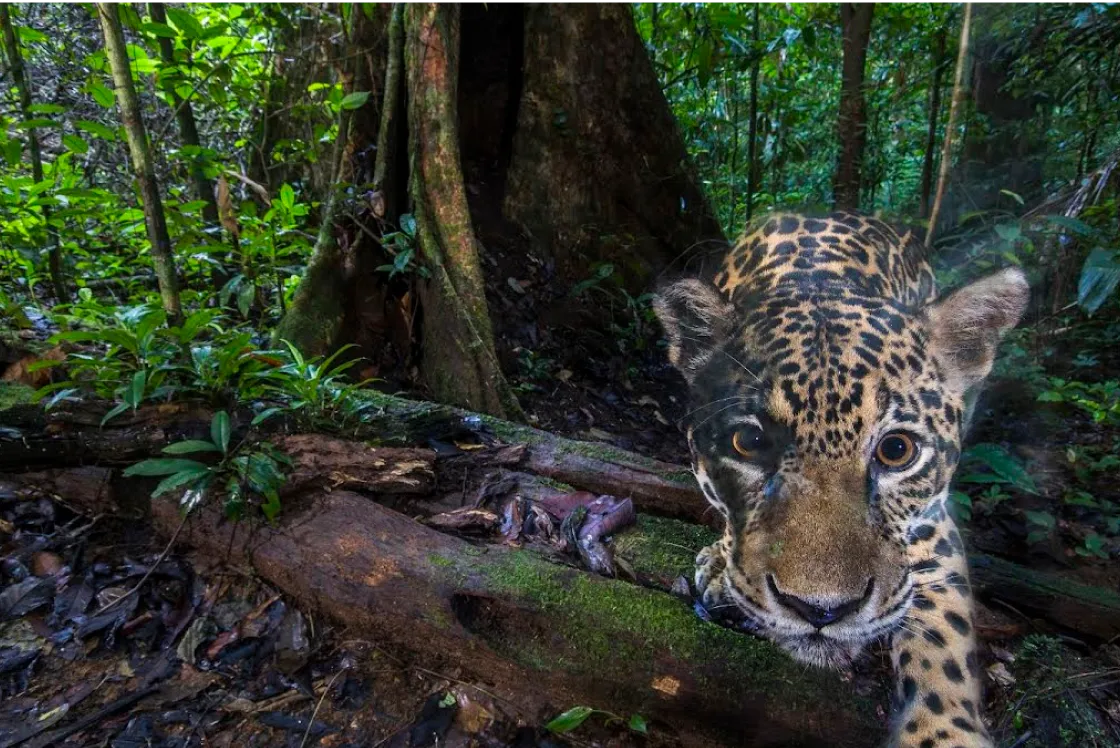
We’re using our technology to support wildlife conservation efforts around the world. Below are just a few examples.
TerrAdapt uses satellite monitoring technology powered by Google Earth Engine and Google Cloud Platform to project habitat conditions given future climate and land-use scenarios.
Google teamed up with the Commonwealth Scientific and Industrial Research Organisation (CSIRO—Australia’s national science agency) and the Kaggle data science community to protect coral reefs, which are facing a number of threats. We developed a machine learning solution to analyze underwater images of a species of starfish that feeds on living coral.
Google has been a founding technology partner in Wildlife Insights since 2017—a collaboration between seven leading conservation organizations to streamline biodiversity monitoring with the help of AI and to fill critical data gaps to inform data-driven decisions. This platform makes it easier for conservationists and scientists to collect and analyze data from remote cameras.
Related resources
